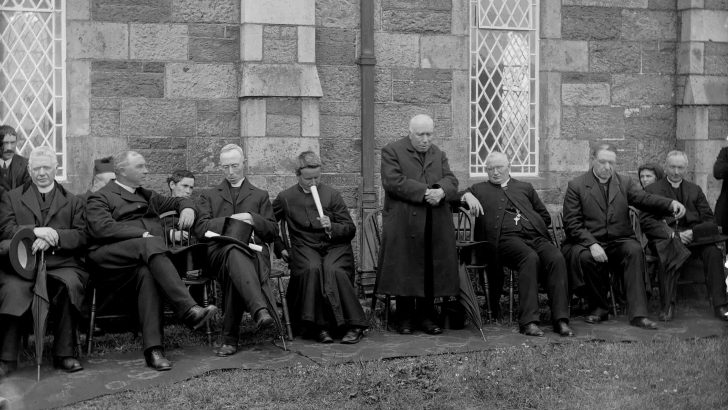100 Years On…
Cardinal Michael Logue was proud of Irish people’s gifts for administration, writes Gabriel Doherty
While, of course, this was not known at the time, the week ending Saturday, October 5, 1918, marked the beginning of the last whole month of the war, and The Irish Catholic, in keeping with its output in the preceding weeks, was keeping its focus very firmly on post-war developments.
As will become evident in future articles, Cardinal Logue, Archbishop of Armagh and primate of All-Ireland, featured prominently in the paper’s pages – all the more as his counterpart in Dublin, William Walsh, continued to have serious problems with his health and was simply not able to engage with the public sphere to the same extent as Logue.
Cardinal Logue’s politics were complex. He shared the Church’s suspicion (some might say hatred) of French-style republicanism. Yet he was an ardent Irish nationalist, and an advanced one, at least by the standards prevailing until the Easter Rising, advocating Dominion Status long before this formula became ‘practical politics’.
Openly hostile to John Redmond, even at the moment of the latter’s greatest triumph (the passage of the Home Rule Act in the Autumn of 1914) he had become ever more critical of the Home Rule party, particularly because he felt it had shown itself to be ‘soft’ on the question of partition – an issue on which no Archbishop of Armagh could compromise.
As was the case with Walsh he had never actively supported the war effort – a stance that had won him few new friends in Dublin Castle. With an Allied victory on the continent now in sight, and with republicans on the march (literally and metaphorically) at home, he had to pick his words carefully.
The Irish Catholic gave front page coverage to a speech Cardinal Logue had recently delivered in Enniskillen, during which he praised the proven capacity of the Irish people for responsible administration. This was illustrated by the number of Irish who had carved out impressive political careers in the United States, or achieved senior positions in the British Empire.
Displaying sarcasm and a knowledge of Irish he observed to applause that “It would be a strange thing if going beyond the sea changed Irishmen so much that they got inspiration to enable them to do great things, while in their own country they were mere bosthoons…”
In the cardinal’s view such ability was already on display on the home front, pointing to the success of the county councils created in 1898 as demonstrating beyond question the capacity and talent for self-government existing within the country, and especially within the Catholic community.
Reverting to a frequently-repeated theme of his, he argued that this talent continued to be wasted as the affairs of the country were run in the interests of the unionist bloc, and this lamentable situation would continue until effective self-government was granted.
Given such an outlook, it is no surprise that it was he who led the hierarchy’s attack on the Government of Ireland bill, when the Government’s proposals for the future of the country became known in early 1920.
The edition also discussed the ramifications of the withdrawal from the war of Germany’s ally, Bulgaria, whose surrender was announced when the Armistice of Thessalonica was declared on September 30.
Emphasising the fact that the development threatened to disrupt contact between Germany and both Austria-Hungary and the Ottoman empire, the paper speculated that the latter would be forced to sue for an immediate peace – a prediction that was borne out within a fortnight by the start of the discussions that led to Turkey’s withdrawal from the fighting on October 30.
From an Irish perspective the “wonderful events” of the previous week, events that portended the end of the conflict, removed both the threat of conscription that even yet hung over the country, and also hastened the day when the Home Rule Act, in abeyance since 1914, would be put into effect.
The mood of the country, however, had been transformed over the intervening four years, and it was as yet by no means apparent that The Irish Catholic realised by just how much. It would take the general election, promised immediately after the war’s end, to make manifest the new reality, and it was to this election that the paper’s eye increasingly turned.
Gabriel Doherty teaches in the Department of History, UCC, and is a member of the Government’s expert advisory group on the Decade of Commemorations.


 Cardinal Logue (standing) with other clerics at Lough Derg
Cardinal Logue (standing) with other clerics at Lough Derg 